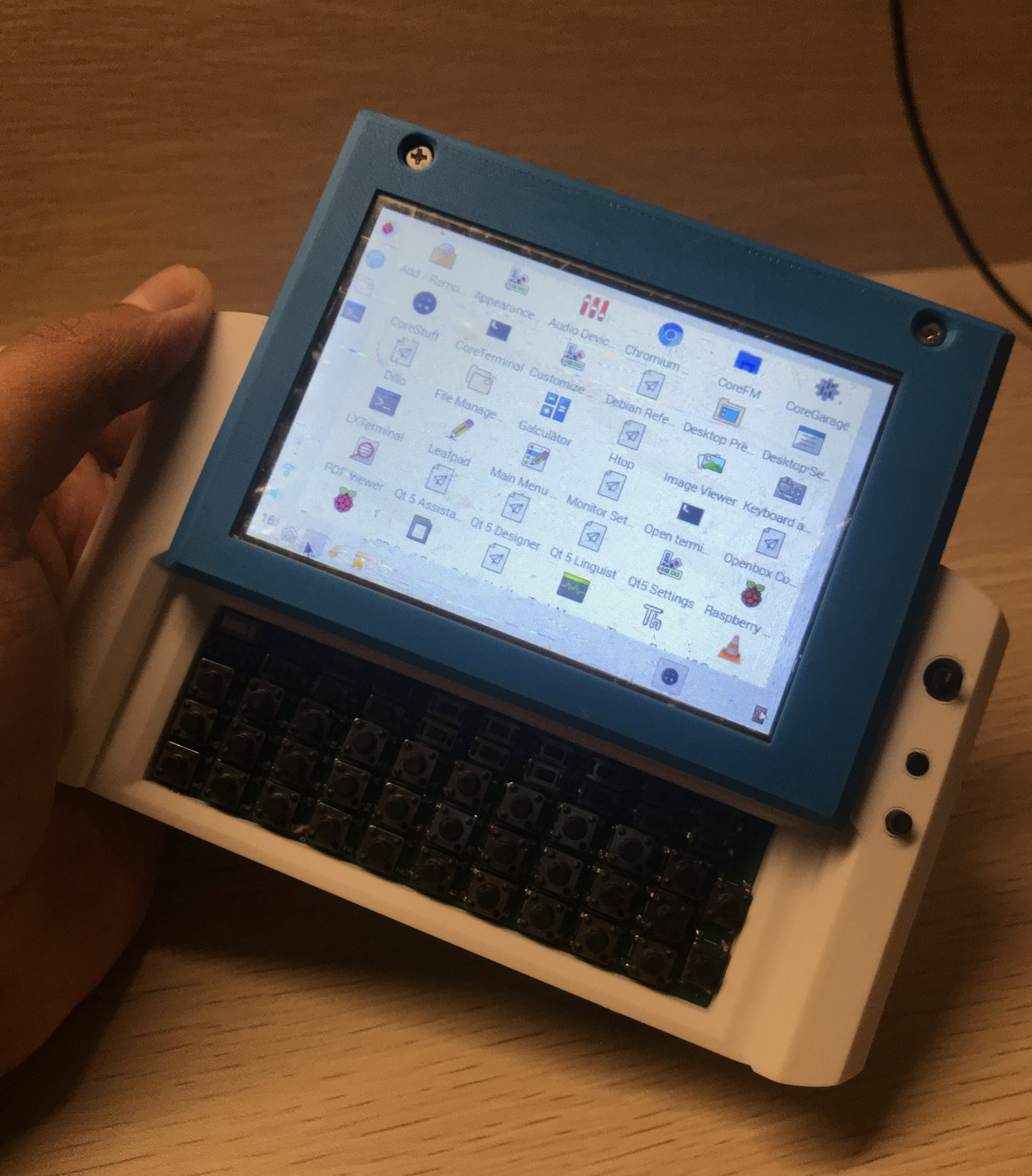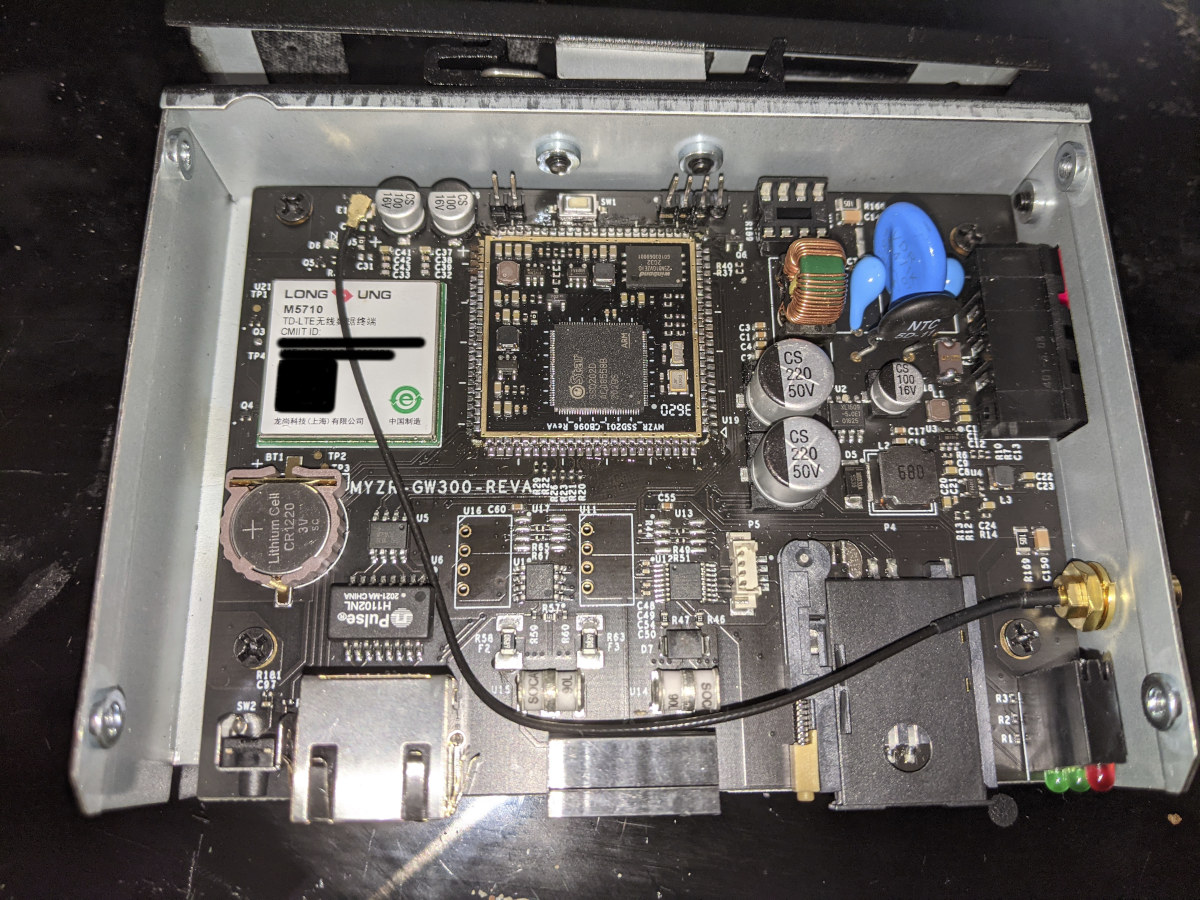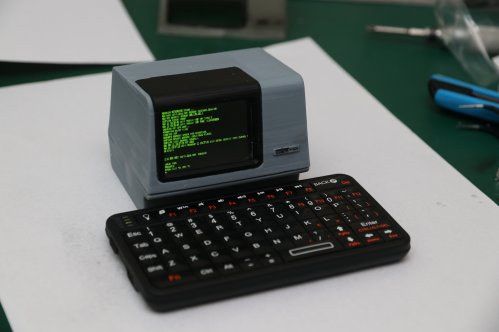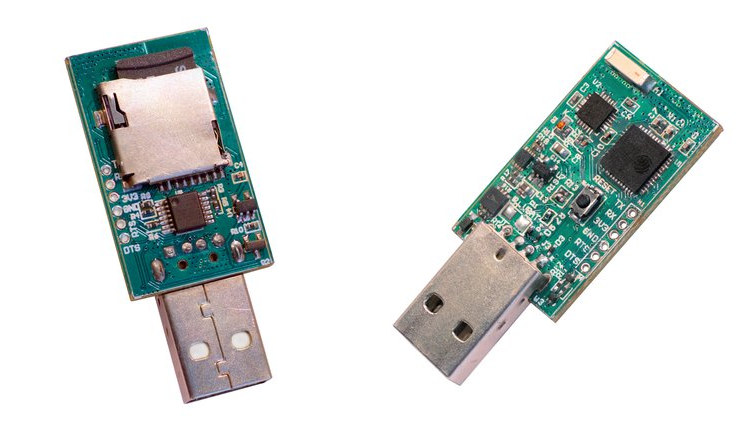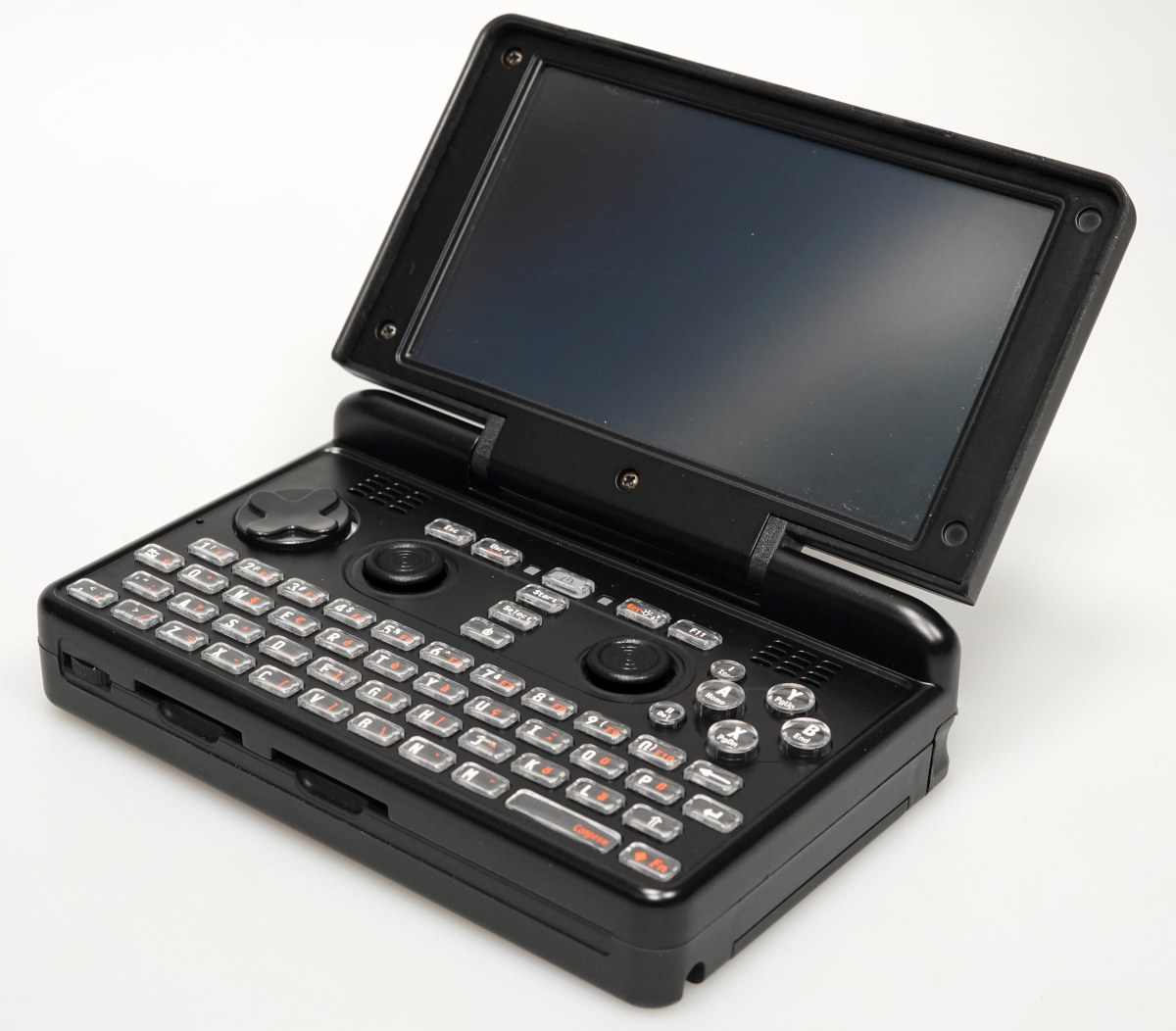FOSDEM 2021 open-source developer event will take place online later this week, and yesterday we compiled a list of talks, with one entitled “MutantC PDA introduction – open source and hardware PDA shell” piquing my interest. The talk will be about the third revision of the hardware which allows you to create your own UMPC or handheld computer powered by a Raspberry Pi SBC or other compatible single board computers including Asus Tinker Board S, PINE H64 Model B, Banana Pi BPI-M4B, among others. MutantC v3 is versatile and highly customizable as can be seen from the specifications highlights: Supported SBCs – Raspberry Pi Zero, 2, 3, 4 and compatible. Arduino for keyboard – SparkFun Pro Micro 5v/16Mhz or SparkFun Qwiic Pro Micro – USB-C Display – 2.8-inch, 3.5-inch, or 4-inch “GPIO” LCD such as AdaFruit PiTFT 480×320 display Custom PCBs for display, mainboard, and thumbstick Expansion External 12-pin “docking” […]
FOSDEM 2021 Online February 6-7 – Hardware, Embedded & IoT talks
FOSDEM is an open-source developer event that takes place on the first week-end of February every year in Brussels, Belgium. Every year except this year, as due to COVID-19 restrictions, FOSDEM 2021 will take place online like most events these days. The schedule has been up for some time, and today I’ll look at some of the interesting talks mostly from the Embedded, Mobile and Automotive “virtual devroom” but also other tracks. Saturday, February 6, 2021 13:00 – 14:00 – From Reset Vector to Kernel – Navigating the ARM Matryoshka Long gone are the times of executing the OS in-place from memory-mapped flash upon reset. A modern SoC now comes with complex mask ROM firmware, with driver, filesystem, protocol and crypto support for loading… yet another bootloader. In his talk, Ahmad follows this chain of bootloaders until the kernel is started, stopping along the way for RAM setup, peripherial initialization, […]
SigmaStar SSD201/SSD202 powered 4G LTE industrial gateway made to run mainline Linux
SigmaStar SSD201 is a dual-core Cortex-A7 processor with 64MB RAM onchip that is designed for smart HD displays. We’ve previously seen it in Industio 7-inch smart display running Linux, but if you want to modify anything you’d need sign an NDA before getting the SDK. Luckily there’s an open-source community named linux-chenxing that aims to bring mainline support to those low-cost SigmaStar processor to mainline, the same way linux-sunxi is working on Allwinner processors. Daniel Palmer noticed MYZR recently launched GW300 4G LTE industrial gateway with specifications that looked familiar. GW300 specifications from manufacturer’s website: Processor – Arm Cortex-A7 dual-core processor @ 1.2GHz Memory – 64MB RAM Storage – 128MByte Flash Connectivity – Ethernet and 4G LTE with high-gain antenna Serial – RS485/ RS232 via 5-pin terminal block Misc – RTC Power Supply – 12V to 24V DC input Dimensions – 127.7 x 87.5 x 30 mm Temperature Range – […]
Mini replica of DEC PDP-11 computer runs 2.11 BSD UNIX on ESP32 SoC
The relatively popular Digital Equipment Corporation (DEC) PDP-11 16-bit minicomputers started selling in the 70s, and were still available in the earlier 90s. While being stuck in Europe due to COVID-19 restrictions, Jeroen Domburg (aka Sprite_tm) decided to design a tiny replica of a DEC VT102 PDP-11 terminal based on ESP32 wireless SoC and running 2.11 BSD UNIX through SimH PDP11 emulator. Jeroen had to do significant work to make SimH works on ESP32 however, with notably the need to optimize the memory footprint: Obviously, ‘just port SIMH to an ESP32’ is a bit of a understatement for the effort that was needed. Even while SIMH is a pretty nice program when it comes to not using any unique APIs, it still is a system developed for a full-blown workstation and assumes RAM is cheap and plentiful. In order to get it running on an ESP32 and still have some […]
Rotary Un-Smartphone is a rotary dial phone based on Arduino, 4G LTE module
If you feel nostalgic and misses the days of the rotary dial phone, Sky’s Edge “Rotary Un-Smartphone” is an open-source hardware rotary dial phone controlled by an Arduino board and equipped with a multi-mode 4G/3G/2G module. It’s a bit more advanced that you old rotary phone with recent cellular technology, ePaper & OLED displays, quick dialing buttons, and the rotary dial can both be used to dial full phone number or quickly access your contact list. Key features of the Rotary Un-Smartphone: MCU board – Arduino board based on AtMega2560 MCU Storage – MicroSD card to store contacts list Displays – Front-side OLED and back-side ePaper displays Cellular Connectivity 4G/3G/2G connectivity via u-Blox TOBY-L2 module Voice calls and SMS (receive-only) supported SIM card slot Internal antenna; expansion space for user-supplied external antenna Audio Microphone and speaker 3.5mm TRRS headset jack Mechanical ringer bell made from polished brass; externally visible Misc […]
Maypole MicroSD card reader comes with ESP32 for WiFi, smart storage (Crowdfunding)
Several years ago, we covered Zsun WiFi card reader a tiny USB card reader with WiFi and a battery that allowed users to access files via USB or WiFi from any device. People managed to hack the device and run OpenWrt on the little MicroSD card reader, but this required either to open the hardware and do some soldering, or use another method that could potentially brick the hardware, so not an ideal solution. But now Akshar Vastarpara has come with a similar device. Maypole is an open-source hardware MicroSD card reader powered by Espressif ESP32 processor providing both WiFi and the resources for smarter storage. It comes with an optional battery too to access files even without having to connect it to a USB port. Maypole hardware specifications: Storage – Swappable MicroSD cards up to 32GB Wireless Connectivity WiFi 2.4 GHz WiFi 4 via ESP32 WiSoC, Up to 4 […]
Open-source VSCP IoT/M2M automation framework supports Arduino, Raspberry Pi
VSCP (Very Simple Control Protocol) is an open-source IoT framework that works on development boards like Arduino or Raspberry Pi, and lets you control IoT home automation tasks. The framework is highly scalable, has a very low footprint, and as such is specially designed for resource-limited devices. VSCP is an open-source standard protocol for m2m, IoT and other remote control and measurement applications. It enables simple, low-cost devices to be networked together with high-end computers and/or to work as an autonomous system, whatever the communication media is. The VSCP Protocol has two levels: Level 1 and Level 2. The protocol was primarily used in CAN networks (that is Level 1 for tiny microcontrollers) because CAN is cheap and reliable with high efficiency. However, VSCP can be used for faster transport layers such as TCP/IP, so here comes Level 2 which achieves better performance. We have already seen Souliss, an open-source […]
Dragonbox Pyra open source hardware handheld Linux PC is finally shipping
We first covered the Dragonbox Pyra in 2014 when it was described as an open-source handheld game console powered by Texas Instruments OMAP5432 SoC, or maybe AllWinner A80, Intel Bay Trail, or Qualcomm Snapdragon processors since the exact specifications were still in the works for the Pandora successor. Michael Mrozek (EvilDragon) finally decided to keep going with the OMAP5 processor due to the good documentation and software support, and pre-orders started in 2016 with a 330 to 400 Euros downpayment and no clear timeline about shipping. It eventually took over four more years, but the Dragonbox Pyra is finally getting assembled and shipping to backers has started. Since so many years have passed, you’d be forgiven if you completely forgot or did not know at all about the specifications: SoC – Texas Instruments OMAP 5432 SoC with 2x Arm Cortex-A15 @ 1.5 GHz with NEON SIMD, 2x ARM Cortex-M4, Imagination […]


